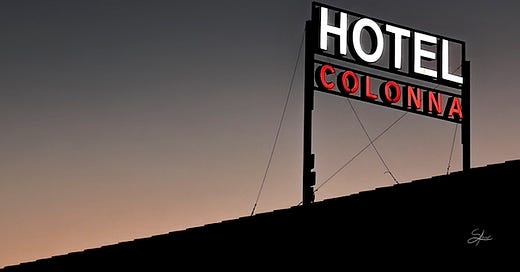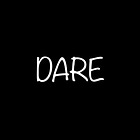The Elevener - Vol. 4
A collection of interesting things I read, saw and listened to. In this edition we talk about AI, science denialism, current events shaping our history, failures, climate, geopolitics and music.
⏱️ Reading Time ≈ 10 min
5 Articles 🗞️
Powering AI
“As LLMs migrate to edge devices, you may one day be able to talk to your teapot.”
— Terry Sejnowski
Terry Sejnowski draws historical parallels to understand today’s AI boom, comparing it to past investment frenzies. First, the California Gold Rush: the biggest winners weren’t the miners but those selling the tools—picks and shovels profit most in every boom. Second, the early 2000s fiber-optic bubble: companies overbuilt networks based on optimistic demand projections, only for many to collapse when the excess capacity remained unused. Years later, others reaped the benefits by acquiring this infrastructure cheaply—over-investment often leads to painful corrections. AI now faces a similar dynamic. The rush to scale models is driving unprecedented investment in hardware and energy-hungry data centers. But is this expansion justified, or are we repeating the fiber-optic mistake? If efficiency gains outpace raw scaling, today’s infrastructure race could create an overcapacity problem. Companies like DeepSeek claim they can match U.S. AI giants with a fraction of the energy (much has been said in this regard in the past few days, tough). Meanwhile, projects like OpenAI’s StarGate suggest that in America, bigger is seen as better—perhaps more a reflection of tech moguls’ egos than economic necessity. If history is any guide, the eventual winners may not be those building the infrastructure but those who find the most valuable ways to use it.
🔗 Sejnowski, Terry , “Part 17: Powering AI”, Brains and AI, Substack, Jan 26, 2025, Link
The Strange Paradox of Modern Science Denialism
“This is the real paradox at the heart of science denial. It’s the tools developed by science that make it possible.”
— Adam Frank
Modern science denial is a snake eating its own tail: it uses the fruits of science to deny science itself. Without the telescopes built by those very “astrophysicists” mocked in the comments, it wouldn’t have images of distant galaxies to fuel alternative theories. Without physics, it wouldn’t have the tools to challenge cosmological models with the confidence of someone who believes they see what the experts are “hiding.” The problem isn’t doubt—science thrives on skepticism. The problem is that real skepticism requires knowledge, while denialism feeds on ignorance. And today, thanks to social media, the lone “crank” of the past has found an audience. The number of followers has become the new measure of authority. But reality isn’t decided by popular vote. Science has made the denial of science possible. But in the end, even those who reject it never stop using it (which is a double paradox).
🔗 Frank, Adam, “The strange paradox of modern science denialism”, Big Think, Substack, Jan 13, 2025, Link
Now Is the Time of Monsters
“The old world is dying, and the new world struggles to be born: now is the time of monsters.”
— Antonio Gramsci
Ezra Klein examines four forces reshaping our era: artificial intelligence, climate change, declining birth rates, and the erosion of democracy—particularly the media and big tech’s strategic embrace of Trump’s reelection in a “if you can’t beat him, join him” maneuver. As Klein argues, each of these shifts is already seismic on its own, but together, they mark a true paradigm shift. He closes with Antonio Gramsci’s words: “The old world is dying, and the new world struggles to be born: now is the time of monsters.” Some of those monsters are precisely the ones he identifies, feeding off each other in a vicious cycle. What struck me most wasn’t just the scale of these changes, but their nature. The post-WWII world was utterly transformed—nothing remained the same. In just 50 years, an instant in historical terms, revolutions like the digital age reshaped reality. Yet, through all that upheaval, the underlying structure seemed intact. In truth, the tremors were always there, waiting to erupt. Yes, the old world is dying—but isn’t that the natural order of things? Change is constant, inevitable. The real question isn’t whether we can accept it, but whether we’re ready to confront the monsters it brings.
🔗 Klein, Ezra, “Now Is the Time of Monsters”, The New York Times, Jan 12, 2025, Link
How Failure Has Made Mathematics Stronger
“Missteps in both conception and execution are important parts of the process.”
— Jordana Cepelewicz
In this article, Jordana Cepelewicz interviews Danny Calegari, exploring how failure is an essential part of mathematical discovery. But mathematics aside, the piece offers valuable lessons that apply to any pursuit: 1) Mistakes in both conception and execution aren’t just an inevitable part of the process—they’re a feature. 2) Whatever you do must be rewarding in and of itself. If you rely on external validation, you’ll soon be disappointed when reality fails to meet your expectations. 3) A sharp, intelligent, and honest mind is one that revises its beliefs or hypotheses as soon as new evidence proves them wrong. 4) Letting go of major investments in being “right” is one of the best strategies for adapting to external conditions and staying agile. 5) The quality of anything you create is only as good as your ability to communicate it.
🔗 Cepelewicz, Jordana, “How Failure Has Made Mathematics Stronger”, Quanta Magazine, May 22, 2024, Link
Hurricane Helene Eroded Our Shared Reality
“Extreme weather may conspire with the information wreckage of social media to push at least some of us deeper into cocoons of delusion”
— David Wallace-Wells
The article “Hurricane Helene Eroded Our Shared Reality” explores how the deluge of disinformation—immediate, uncontrolled, and amplified by major media voices—has overshadowed the real disaster of Hurricane Helene. As the cyclone tore through Florida and the states in its path, public debate drifted elsewhere, drowned out by a wave of falsehoods engineered for political purposes. The result? A catastrophic event—the third deadliest hurricane of the 21st century—fades into the background, eclipsed by a toxic war of narratives. But the issue goes beyond this single case. The increasing intensity of such events is, at least in part, a consequence of climate change. Yet, instead of acknowledging the ever-clearer signs of environmental crisis, public discourse dissolves into a parallel reality—one where volume matters more than truth, and anything can be believed, as long as it’s shouted loudly enough. In author’s words: “[…] but the aftermath of Helene suggests a third path, that extreme weather may conspire with the information wreckage of social media to push at least some of us deeper into cocoons of delusion — warming itself functioning less as a “return of the real” than a semi-regular prompt for Americans to exit harsh reality into a more familiar paranoia.”
🔗 Wallace-Wells, David, “Hurricane Helene Eroded Our Shared Reality”, The New York Times, Oct 16, 2024, Link
3 Videos 🎥
Why Saudi Arabia is covered in perfect circles
I find geopolitical issues extremely fascinating. They bring together multiple perspectives, capturing and organizing the world’s complexity into a coherent and compelling narrative. This allows us to connect the dots and build a solid map of reality. In this case, the focus is on the project of “agriculturizing” the Arabian Desert—a bold, almost absurd idea. The discovery of a fundamental and abundant natural resource became the driver for an equally ambitious investment: turning a desert into an agricultural powerhouse to strategically convert immense fossil fuel wealth into food independence. Then comes the paradox: oil outlasts water, and the project begins to collapse due to a lack of irrigation resources. What follows is a strategic pivot: realizing that domestic agricultural production was no longer viable, Saudi Arabia started purchasing land and securing agreements with foreign nations, effectively turning them into agricultural incubators to guarantee its future food security. But what’s truly striking about this video—and the reason why I believe everyone should watch it—is the investigative process that these two YouTubers, Christophe and Johnny Harris, apply to unravel this story. Clues, research, interviews, on-the-ground reporting—this is the investigative process that every journalist should follow, yet one that, sadly, is becoming increasingly rare. An impeccably executed piece of work and a masterclass for all of us—plus, an absolutely mind-blowing story.
🔗 “Why Saudi Arabia is covered in perfect circles”, Christophe, YouTube, Dec 18, 2024, Link
Mike Portnoy Hears Taylor Swift for the First Time
Rarely have I laughed this much at a non-comedy video. Mike Portnoy, one of the greatest drummers in the rock/prog scene, is put to the test by Drumeo: he has to come up with an arrangement as quickly as possible for a song he's never heard before—one that couldn't be further from his usual creative style: Shake It Off by Taylor Swift.
🔗 “Mike Portnoy Hears Taylor Swift for the First Time”, Drumeo, YouTube, Jan 14, 2025, Link
Benedict Cumberbatch reads Kurt Vonnegut's letter to the future
Benedict Cumberbatch performing a philosophical reflection on the present (1988) and the future by Kurt Vonnegut. I can’t think of any other logical reason to not rush to watch this gem.
🔗 “Benedict Cumberbatch reads Kurt Vonnegut's letter to the future”, Letters Live, YouTube, Dec 22, 2024, Link
2 Songs 🎤
Invisible Monster
The theme of our inner "monsters" intrigues me, and this song always makes me reflect on my relationship with them—how much courage I have in facing them and what kind of bond I’ve established with them. Pretending they don’t exist doesn’t work. Thinking we can coexist with them passively doesn’t work—sooner or later, something unexpected emerges, forcing us to confront them. Repressing them doesn’t work—the rising pressure will slowly create cracks that, if ignored for too long, will eventually lead to a breakdown. Listening to them, understanding them, and establishing a symbiotic relationship seems to be the only logically sound path to take. In the song, they are described as beasts that dwell in the mind. But what if they are exactly where they’re meant to be, and it’s our belief that they are monsters that actually sets them loose? And what are yours?
🔗 Dream Theater, “Invisible Monster”, A View From the Top of the World, Spotify, 2021
Elevator Operator
You won’t regret listening to it!
🔗 Electric Callboy, “Elevator Operator”, Elevator Operator (single), Spotify, 2025
1 Book 📖
A book about change. Captivating, profound, and tender. Easy to read, yet rich with questions about our relationship with transformation. I’ll definitely write more about it. In the meantime, I can’t help but recommend it to everyone.
Make the most of it! Until next time, S.










